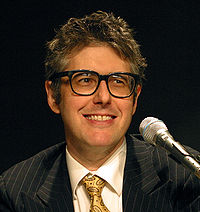Thanks to GoodReads, I’m able to check in at year’s end and discover I read — or, to be more accurate about it, tried to read — over 76 books in 2017. Some I rolled my eyes at and abandoned (THE NAME OF THE ROSE, JANE STEELE). Others I responded to but put down to pick up again when I’m more able to give them the focus they deserve (GEEK LOVE, THE IDIOT).
This was a big genre year for me: I enjoyed some popcorn-y novels way more than I expected to, like FANGIRL, CARRY ON and BIG LITTLE LIES, which were skillfully plotted and propulsive, while I tired quickly of some much-hyped fancy stuff like THE RESURRECTION OF JOAN ASHBY. Not sure where THE NEST falls in that rubric but it was the book for which I invented a new GoodReads category called, “I refuse to feel sorry for these people.”
I also thoroughly appreciated some highbrow material, including Galchen’s LITTLE LABORS, Levy’s searing memoir THE RULES DO NOT APPLY, Atwood’s tart, feminist THE PENELOPIAD and Bill Bryson’s playful, informative history of the English language THE MOTHER TONGUE. For the most part, though, it was not my most impressively intellectual year, reading-wise. But fuck it: I needed solace, and I had fun.
WHAT HOLDS MY ATTENTION? IT’S A MYSTERY
In a state of foggy winter despair, I started reading books in which smart, competent, moral people restore some semblance of order and justice to the universe. First I turned to my old friend Dorothy Sayers for comfort. Then I branched out, both to some contemporary literary options (MAGPIE MURDERS, UNDER THE HARROW) and also to some older ones I had never tried (Agatha Christie). I ended up reading every Miss Marple novel in order, which was an endeavor I highly recommend: Those stories hold up.
Then I decided to try, once more, the work of the much praised Canadian writer Louise Penny, whose Three Pines series I had dipped into briefly before but found shallow and unsatisfying. This time, with a little prodding, I got fully immersed in the pool, starting swimming and didn’t want to get out. Now that I’m done, I’m bobbing here feeling bereft, kind of like I did after I read the last installment of OUTLANDER and GAME OF THRONES.
Also, anyone who likes crime/detective fiction should consider the 80s classic about Soviet corruption and American collusion GORKY PARK, which I found much more impressive, and lingered with me much longer, than the more recent gritty NYC police thriller THE FORCE.
YES, I READ SOME LITERARY FICTION
Highlights include LITTLE FIRES EVERYWHERE (exciting, insightful, as good as you’ve heard), MANHATTAN BEACH (immersive historical fiction with a knock-you-out ending) and THE MOTHERS (devastating, though the end doesn’t quite live up to the greatness of what comes before), all of which I realize now are about parents and kids.
ALSO SOME LITERARY NON-FICTION
HUNGER sustained me.
WEDDING TOASTS I’LL NEVER GIVE was like doing shots with the smartest woman at the party who stops making you laugh or reflect only to make you cry.
And MAN OF THE YEAR, Lou Cove’s stranger-than-fiction coming-of-age memoir, is like the hole-in-the-wall lunch spot you happen into and then urge everyone you know to try.
I’m also still working my leisurely way through the dense (in a good way!) and thought-provoking MISBEHAVING by Nobel laureate economist Richard Thaler.
BIGGEST DISAPPOINTMENTS
Turns out I can’t stand either Jeeves or Auntie Mame.
BEST SURPRISES
I’d never tried Megan Abbott but after the thrill of YOU WILL KNOW ME, I’ll be back for more. Also, I wasn’t sure any companion volume could live up to the glory of HIS DARK MATERIALS, which I’d choose over LOTR for Best British Fantasy Series that Isn’t ‘Harry Potter’ any day of the week. But Pullman managed to turn THE BOOK OF DUST into an epic journey in its own right and a great lead into Lyra’s adventures. I can’t wait to read the rest of the trilogy.
 At the end of a nicely literary year, I’m currently reading or just finished the following:
At the end of a nicely literary year, I’m currently reading or just finished the following:


